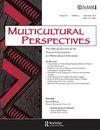Migration and U.S. Citizenship: A Curriculum Proposal
IF 1
Q4 SOCIOLOGY
引用次数: 0
Abstract
Citizenship is a kind of membership–the political kind. And in a society that is trying to sustain a democracy, citizenship entails a way of relating to other citizens–resolving conflicts with dialogue, persuasion, elections, and respect but not violence. “Speech takes the place of blood, and acts of decision take the place of acts of vengeance” (Pocock, 1998, p. 32). Citizenship has long been associated with territory. One can be a member of other kinds of communities, such as a faith community or a profession, without implying location. Catholics and Buddhists, for example, can be found almost anywhere, their location peripheral to their membership. But to be a citizen is to belong lawfully to a territory that is a political community. Arendt (1968) wrote that a citizen “is by definition a citizen among citizens of a country among countries.” And a citizen’s “rights and duties must be defined and limited...by the boundaries of a territory” (p. 81). Must be. Arendt is expressing not a preference but a fact. Membership in a territorial state–a nation–is what gives a person, as she put it, “the right to have rights.” Citizenship designates who is and isn’t a member of a polity. DREAM activists may be living in the United States, and they may feel “at home” here but, in fact, while they are “at home,” they are not citizens. They have not been granted the status of lawful membership. This may be wrong or right–it is an ongoing policy controversy about which people have strong feelings. It is but one example, worldwide, of conflict over the boundaries of citizenship. To think critically and ethically about who can be a citizen of the United States, who ought to be, and on what terms, is the subject of Angela Banks’s Correspondence should be sent to Walter C. Parker, Social Studies Education (Professor Emeritus) and Political Science (Affiliate Professor Emeritus), University of Washington, Seattle, 122 Miller Hall, Seattle, WA 98195-3600, USA. E-mail: denver@uw.edu Opinions expressed in this column do not represent views or official positions of the National Association for Multicultural Education (NAME). Similarly, reviewed resources carry no “official endorsement” by NAME. The authors are solely responsible for selecting and reviewing the resources featured in the column and we strongly encourage readers to examine resources prior to purchasing. Materials submitted for review in this column should be submitted directly to: Ming Fang He, Language, Culture, Identity, Power, and Place in Multicultural, Multiracial, and Multilingual Education, Department of Curriculum, Foundations and Reading, College of Education, Georgia Southern University, P. O. Box 8144, Statesboro, GA 30460-8144.移民和美国公民身份:课程建议
公民身份是一种成员身份——一种政治身份。在一个试图维持民主的社会中,公民身份需要一种与其他公民建立联系的方式——通过对话、说服、选举和尊重而不是暴力来解决冲突。“言论代替鲜血,决定行为代替复仇行为”(波科克,1998年,第32页)。长期以来,公民身份一直与领土联系在一起。一个人可以是其他类型社区的成员,例如信仰社区或职业,而不意味着所在地。例如,天主教徒和佛教徒几乎在任何地方都可以找到,他们的位置与他们的会员身份无关。但作为一个公民就是合法地属于一个政治共同体。阿伦特(1968)写道,公民“从定义上讲是一个国家和国家公民中的公民”。公民的“权利和义务必须由领土的边界来定义和限制”(第81页)。阿伦特表达的不是偏好,而是事实。正如她所说,一个领土国家——一个国家——的成员身份赋予了一个人“拥有权利的权利”。公民身份指定了谁是和不是一个政体的成员。梦想活动人士可能生活在美国,他们可能在这里感到“宾至如归”,但事实上,尽管他们“在家”,但他们不是公民。他们没有被授予合法会员资格。这可能是错误的,也可能是正确的——这是一场持续的政策争议,人们对此有强烈的感受。这只是全世界公民身份界限冲突的一个例子。Angela Banks信件的主题是批判性和合乎道德地思考谁可以成为美国公民,谁应该成为美国公民以及以什么条件成为美国公民。应发送给Walter C.Parker,社会研究教育(名誉教授)和政治学(附属荣休教授),西雅图华盛顿大学,122 Miller Hall,Seattle,WA 98195-3600,USA。电子邮件:denver@uw.edu本专栏中表达的观点不代表国家多元文化教育协会(NAME)的观点或官方立场。同样,经审查的资源没有名称的“官方认可”。作者全权负责选择和审查专栏中的资源,我们强烈鼓励读者在购买之前检查资源。本栏中提交审查的材料应直接提交给:何明芳,语言、文化、身份、权力和在多文化、多种族和多语言教育中的地位,佐治亚南方大学教育学院课程、基础和阅读系,邮政信箱8144,Statesboro,GA 30460-8144。
本文章由计算机程序翻译,如有差异,请以英文原文为准。
求助全文
约1分钟内获得全文
求助全文

 求助内容:
求助内容: 应助结果提醒方式:
应助结果提醒方式:


